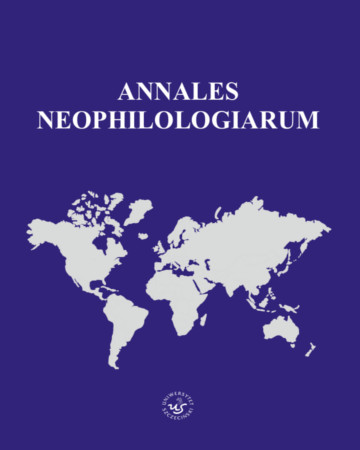




| Authors: |
Jacek
Olesiejko
Wydział Anglistyki Uniwersytetu im. Adama Mickiewicza w Poznaniu |
| Keywords: | The Old English "Boethius" Alfred the Great Old English literature Early Medieval Literature English Literature |
| Data publikacji całości: | 2016 |
| Page range: | 15 (111-125) |
| 1. | Bately, Janet. The Old English Orosius. London: Oxford University Press, 1980. |
| 2. | Bately, Janet. “Did King Alfred Actually Translate Anything”. Medium Aevum 78:2 (2008): 189-215. |
| 3. | Brooks, Nicholas. Anglo-Saxon Myths: State and Church 400-1066. London and Rio Grande: The Hambledon Press, 2000. |
| 4. | Copeland, Rita. Rhetoric, Hermeneutics, and Translation in the Middle Ages: Academic Traditions and Vernacular Texts. Cambridge: Cambridge University Press, 1991. |
| 5. | Discenza, Nicole Guenther. “The Paradox of Humility in the Alfredian Translation”, Studia Neophilologica 75 (2003): 44-52. |
| 6. | Discenza, Nicole Guenther. The King’s English: Strategies of Translation in the Old English Boethius. New York: State University of New York Press, 2005. |
| 7. | Discenza, Nicole Guenther. “Alfred the Great and the Anonymous Prose Proem to the Boethius.” The Journal of English and Germanic Philology 107 (2008): 57–76. |
| 8. | Fulk, R. D, Robert E. Bjork and John D. Niles (eds.). Klaeber’s Beowulf. (The fourth edition.) Toronto: University of Toronto Press, 2008. |
| 9. | Godden, Malcolm and Susan Irvine (eds.). The Old English Boethius: An Edition of the Old English Versions of Boethius’s De Consolatione Philosophae. 2 vols. Oxford: Oxford University Press, 2009. |
| 10. | Godden, Malcolm and Susan Irvine (eds.). Old English Boethius with Verse Prologues and Epilogues Associated with King Alfred. Cambridge, Ma: Harvard University Press, 2012. |
| 11. | Harris, Stephen J. Race and Ethnicity in Anglo-Saxon Literature. New York and London: Routledge, 2003. |
| 12. | Lerer, Seth. Literacy and Power in Anglo-Saxon Literature. Lincoln and London: University of Nebraska Press, 1991. |
| 13. | Moisl, H. “Anglo-Saxon Royal Genealogies and Germanic Oral Tradition”, Journal of Medieval History 7 (1981): 215-248. |
| 14. | Pratt, David. The Political Thought of King Alfred the Great. Cambridge: Cambridge University Press, 2007. |
| 15. | Sedgefield, Walter John. King Alfred’s Old English version of Boethius De Consolatione Philosophae. Oxford: Clarendon Press, 1899. |
| 16. | Szarmach, Paul E. “Alfred’s Boethius and the Four Cardinal Virtues” in: Jane Roberts and Janet L. Nelson. Alfred the Wise: Studies in Honour of Janet Bately on the Occasion of her Sixty-Fifth Birthday. Cambridge: D. S. Brewer, 1997. |
| 17. | Stanton, Robert. The Culture of Translation in Anglo-Saxon England. Cambridge: D. S. Brewer, 2002. |
| 18. | Sweet, Henry. An Anglo-Saxon Reader in Prose and Verse. Oxford: Clarendon Press, 1888. |
| 19. | Wood, Michael. The Making of King Athelstan’s Empire: an English Charlemagne. In: Patrick Wormald (ed.), Ideal and Reality in Frankish and Anglo-Saxon Society 1983, 250-272. |